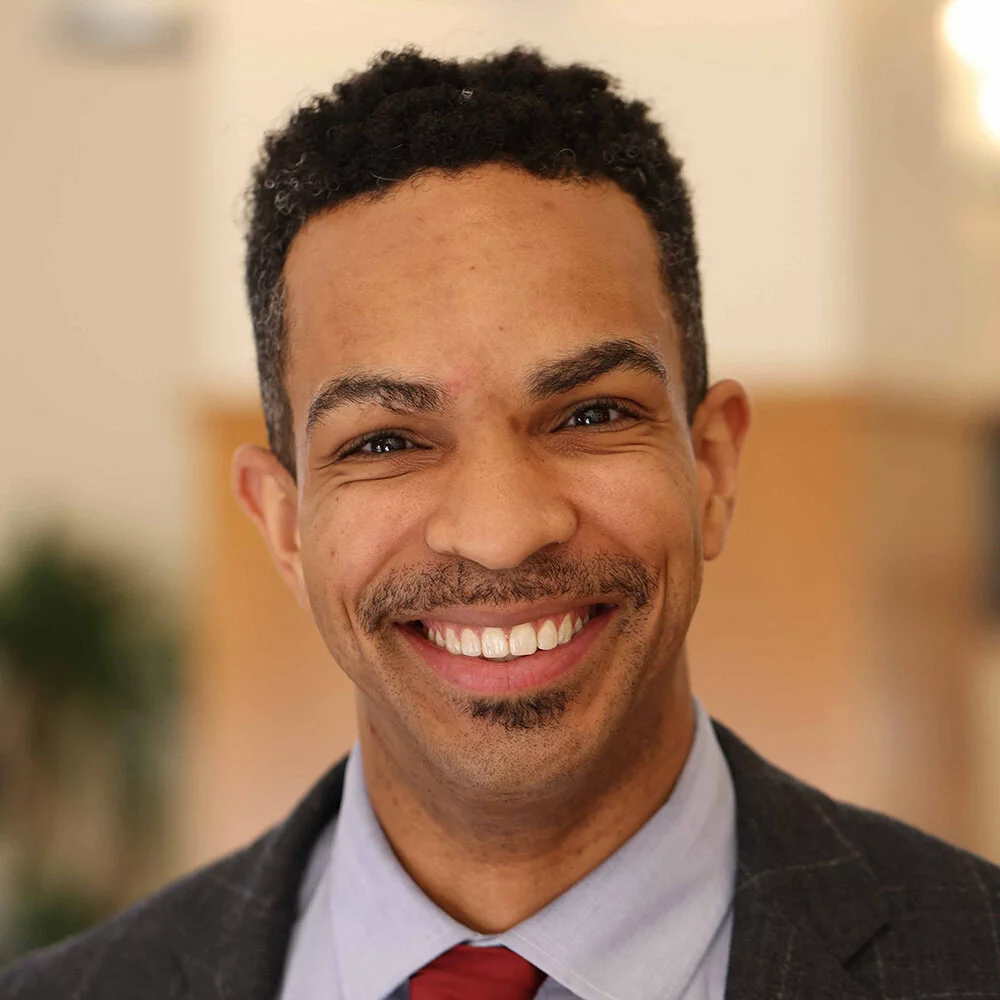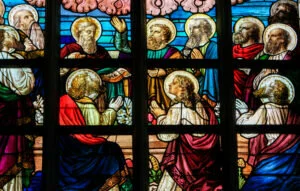“What is theology good for?” I ask this question at the start of class every semester. It is a challenging question for them; for all of us, perhaps. Indeed, when I first told my loved ones that I was pursuing a doctorate in theological studies, I was strongly advised to enroll in dental school as a backup plan, which makes a certain kind of sense. People will most likely continue “misplacing” their teeth and eating too much chocolate cake for as long as I’m alive. Theology, on the other hand, is increasingly viewed as irrelevant, of no earthly good. So why pursue an education in theology as opposed to applied mathematics or economics?
The “goods” proper to theological education are derivative of the goods of theology itself. Here, a definition proves helpful. Theology seeks to give an account of God and his ways us-ward, with a good deal of weight tilted toward the former.Katherine Sonderegger, “Towards a Doctrine of the Resurrection,” Eternal God, Eternal Life: Theological Investigations into the Concept of Immorality, ed. Philip G. Ziegler (London: Bloomsbury T&T Clark, 2016), 122. “First the worker, then his works,” in the words of John Webster.John Webster, “Christology, Theology, Economy: The Place of Christology in Systematic Theology,” in God without Measure: Working Papers in Christian Theology (London: Bloomsbury T&T Clark, 2016), 1:47. More specifically, theology is the Christian community’s endeavor to give a faithful account of who God is, what God has done, and how God’s life ad intra and his work ad extra determine, ground, chasten, and organize the church’s values, judgments, worship, and life. And insofar as that is the case, theological education seeks to train the people of God so that they might better exhibit, exposit, systematize, and, on very rare occasions, defend the articles of the Christian faith and the nature of the church’s life. To put things much more simply, and to borrow unashamedly from figures such as Franciscus Junius, Petrus van Mastricht, and William Ames, theological education is training in the path of wisdom, “the doctrine of living for God through Christ.”Petrus van Mastricht, Prolegomena, vol. 1 of Theoretical-Practical Theology, ed., Joel R. Beeke, trans., Todd M. Rester (Grand Rapids, MI: Reformation Heritage Books, 2018), 64. In so doing theological education is a particular mode of formation whose goal is that we would be “wise unto salvation” (2 Tim 3:15), as we come to know, commune with, and fear the God of Abraham, Isaac, and Jacob, and see all things in relation to this God.John Webster, “What Makes Theology Theological?” Journal of Analytic Theology 3 (2015): 19.
A few things are worth noting from this all too cursory definition. First and foremost, theological education is the endeavor to train the members of Christ’s church to know and speak faithfully of the God they worship. This is the first and primary good of theological education. The God whom Christians confess as Father, Son, and Holy Spirit is not some aloof deity, absent and hidden. Rather, he is the God who has made himself known in Jesus Christ. As our Lord reminds us, “Have I been with you all this time . . . and you still do not know me? Whoever has seen me has seen the Father” (John 14:9). God has spoken, he has made himself known to us. Acting in the economy, the Triune Lord has revealed himself to be this God who acts thusly.John Webster, Holiness (Grand Rapids, MI: Eerdmans, 2003), 36. What is he like? What does it mean to say that he is “life” or “love”? How has he acted and what has he done? How is he acting now? The study of languages, church history, and the various loci of systematic theology are instrumental to this end, insofar as they are tools for speaking truthfully and faithfully about the God of Abraham, Isaac, and Jacob so that we might love and worship him, so that we might “walk before [him] and be blameless” (Gen 17:1).
Theological education is the endeavor to train the members of Christ’s church to know and speak faithfully of the God they worship.
But, at the same time, Christian theological education endeavors—dares, if you will—to speak of the living God of Israel, the living God of our ancestors. As our Lord reminds us, “have you not read what was said to you by God, ‘I am the God of Abraham, the God of Isaac, and the God of Jacob’? He is God not of the dead, but of the living” (Matt 22:31–32). This brings me to a second good of theological education: theological education concerns the ongoing endeavor to recognize this family as my family. In other words, theological education seeks to cultivate a sense of belonging in and to this great community of faith. Following the language of the Apostles’ Creed, Christians have long confessed their belief in the communion of the saints. So in coming to know this God and the people whom we recognize as kin, we must also learn what it means to belong to this family, for this family to be our own. And insofar as this is the case, then theological education in a real sense is something like a family reunion with a potluck, one in which you meet and then re-meet your long-lost cousins and sisters and uncles and aunts. We each bring our favorite dishes, our cousin Julian of Norwich with the bangers and mash; aunt Argula von Grumbach with the Weisswurst and sauerkraut. We may let uncle Luther (at times!) get the last word as he is wont to do and perhaps will choose not to tune brother Witsius when he starts crooning one of Gerhardt’s Christmas hymns. Gathered around the same table to sup at the feet of the same King, we come to learn from our ancestors, to learn with them of the God who saves. As Eric Gregory reminds us, “The dead can reeducate us, if we let them. Of course, we might be amused, troubled, or simply confused by their concerns that we do not share. We also can be surprised by how many of our concerns, for good or for ill, stem from theirs.”Eric Gregory, Politics and the Order of Love: An Augustinian Ethic of Democratic Citizenship (Chicago: Chicago University Press, 2010), 7–8. And if that is the case, then when Christians seek to hear and learn from, say, Augustine on the human will, they operate under the assumption that God has made himself known to this great saint of Hippo and that he may in turn have something to say to us through him today. These family members, even those whose lives are marked with vice and error, are witnesses to the work of God in Christ and are deeply loved by God.
More could and should, perhaps, be said on the matter. But at this point, you might find yourself wondering what material difference any of this makes to the orientation and operation of theological education. After all, none of the above is marked with novelty. At least I hope it isn’t. Here, four things are worth mentioning in closing:
- First, theological education is about, by, and for a life with God. There might be proximate (intermediate) goals and desires, like serving the church or sharing the gospel across the street or around the world, but all of these various forms of ministry are offered up in the same hope that the same Lord will sanctify and render it acceptable in his sight through Christ Jesus our Lord. Theological education misses its mark when it allows these proximate goals and pragmatic concerns to eclipse the ultimate goal: the worship of and commune with God.
- Second, if theological education is about, by, and for a life with God, the fount of all goodness and holiness, then theological education does not pursue its subject matter with disinterest. There are biases at work when we labor in this field. We would do well to own that. Theological education loses its way when it begins to operate under the terms and conditions of disciplines that do not share its commitments to its subject matter.
- Third, if theological education is about, by, and for a life with God, then it is an endeavor we undertake with fear and trembling. James 3 warns as much. God is present in our midst. So when we speak of him we ought to take great care with our words and our treatment of one another. We cannot gossip about this God, but we can blaspheme and curse him. And we, educators and students alike, must treat the sacred things as if they are sacred. This applies to treatment of and approach to our students as well. To take but one example, in light of the rising costs of living and education as well as the increased desire to diversify seminary student bodies, it would be disgraceful to lay the crisis of our present, economic situation on the backs of low-income and marginalized communities. Theological education runs ashore when it operates as if the Lord of Hosts is aloof and distant; not reigning presently in our midst, standing over us as judge and king.
- Fourth, if theological education is about, by, and for a life with God, then it is education in a particular mode, and this demands a particular disposition of both the student and the teacher. There can be no mastery of this subject matter. God is not bound and he is always more. At best, there can be learned guides who have walked these roads many times before. We sit beneath texts, together, hoping to have ears to “listen to what the Spirit is saying to the churches” (Rev 2:7). If nothing else, this should encourage us to prioritize modes and forms of instruction that allow students the time to wrestle with various texts and the text of Holy Scripture, so that they might become enraged and enflamed by them. Theological education goes awry when it fails to recognize the freedom of its object and the presence of the Spirit of Christ in all participants.
As many have noted, the nature of theological education seems to be changing. Seminaries and Bible colleges are facing financial pressures; denominations are shrinking; churches are contracting and closing. Ted Smith refers to this as the “great unraveling,” the transformation of one way of imagining communal life to another.Ted Smith, The End of Theological Education, Theological Education between the Times (Grand Rapids, MI: Eerdmans, 2023), 29. In many ways we may find this troubling. Families, livelihoods, communities, and churches all seem to hang in the balance. The current unraveling, in conjunction with what appears to be an epidemic in human loneliness, seems to affect working class and low-income populations most acutely. Yet this provides the church with an opportunity to reassess, to lament, and to reimagine how we might faithfully inhabit the present in a way that bears witness to the fact that Jesus Christ is Lord, how we might live God-ward through Christ. And this perhaps gestures toward a third good of theological education. If van Mastricht is right in his brazen appropriation of William Ames, then theological education is also intended to shape us to be a particular kind of people who live to God. It ought to be welling up within our hearts a love and fear of God, an ardent desire to commune with him, to know him and be known by him. In other words, theological education terminates in the formation of a people who see the world as “thickly” belonging to God and who, through Christ, live, hope, and act in that world as if it is the living God’s responsibility to make it turn out all right. This is no easy task. In our modern technocratic age, solutions abound, promising to make our lives easier, better, and more convenient. Utopia is always right around the corner, bubbling in some beaker or tucked away in some mainframe in Silicon Valley. Theological education holds no such promise. It does not promise to grow your church. It will not help you evade suffering or give you the words that will bring your loved ones to trust in Christ. It does not even promise to answer all of your questions. But, if it’s worth its salt, an education in theology will invite you to find yourself in one long, extended foray into and echo of that request some of the earliest disciples made of our Messiah: “Lord, teach us to pray” (Luke 11:1).






Comments
Be the first one to make a comment!